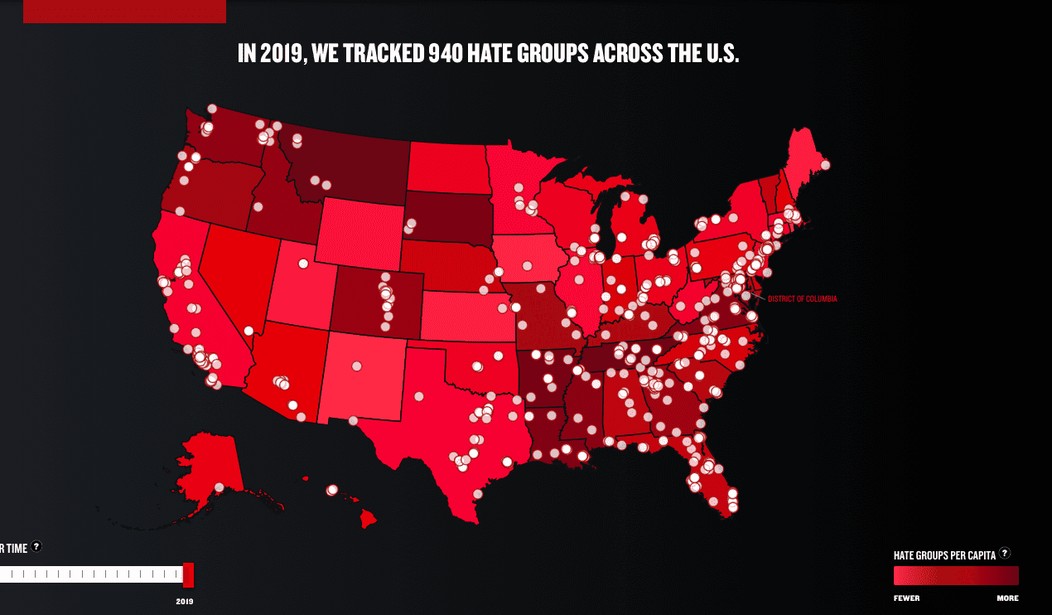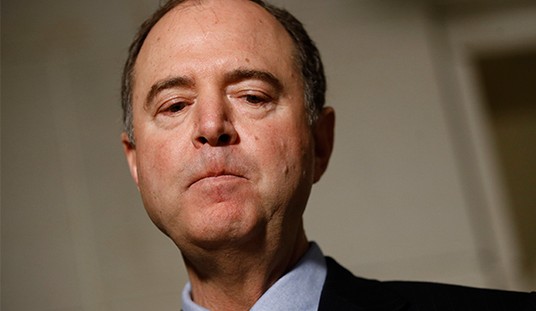The city council of Columbus, Ohio, is considering legislation to screen police officers for any connection to “hate groups” (including secretly harboring the beliefs of “hate groups”), citing the ever-so-reliable Southern Poverty Law Center (SPLC). Former SPLC employees have confessed to taking part in a hate-for-pay scheme, exaggerating the number of “hate groups” in order to bilk donors, and the SPLC faces numerous defamation lawsuits regarding that “hate group” accusation. Even so, a city council member told PJ Media that the council will define “hate group” in such a manner as to include organizations accused by the SPLC, and to go further.
“We want to make it clear that our challenge with developing this legislation will be in defining what is considered a hate group,” Columbus City Councilmember Shayla Favor, chair of the Criminal Justice Committee, told PJ Media in a statement.
The city council met for a 3.5-hour meeting on Monday to discuss the hate-group screening, which is one aspect of a slate of police reform measures following the horrific police killing of George Floyd, The Columbus Dispatch reported. In addition to the hate-group screening, the Columbus City Council is considering measures like demilitarizing the police force, examining “no-knock” warrants, and providing for independent investigations into police use of force, replacing internal department investigations.
The legislation aims to weed out cops who have ties to “hate groups” or who may “silently harbor the beliefs of those groups.” Judson L. Jeffries, professor of African American and African Studies at Ohio State University, referenced the SPLC and its list of 1,100 “hate groups,” about 50 of which allegedly operate in Ohio.
Jeffries argued that the SPLC list likely undercounts the number of hate groups in the state. “History has shown that some groups operate in a clandestine manner,” he insisted.
“While we tend to lean towards Dr. Jeffries’ assessment of hate groups as defined by the Southern Poverty Law Center, we know that they do not capture all of these groups. We have to be careful to consider the groups acting in a clandestine nature and might not be so obviously recognized,” Councilmember Favor told PJ Media.
“Our goal in the coming days will be to carefully define a hate group within our legislation, although we do support SPLC, we recognize that definition needs to go further,” Favor concluded.
SPLC Releases Fear-Mongering ‘Hate Map’ Amid Coronavirus Outbreak
While it is heartening to hear that the Columbus City Council will not merely adopt the SPLC “hate group” accusation wholesale, conservatives and Christians should be worried that Columbus regards the SPLC as reliable on this issue, at all.
Wait, Columbus is trusting the SPLC?!
As I have documented here at PJ Media and in my book Making Hate Pay: The Corruption of the Southern Poverty Law Center, the SPLC routinely defames mainstream conservative and Christian organizations, accusing them of being “hate groups” on par with the Ku Klux Klan. Since the SPLC gained fame by bankrupting the KKK and related groups, this accusation carries a great deal of weight. The SPLC has argued in congressional testimony that its “hate group” list is a statistically-significant measure for the threat of white supremacist terrorism, even though most of the groups it accuses of being “hate groups” are not even racist, much less inciting or hateful.
Former employee Bob Moser described the SPLC’s “hate” accusations as a “highly profitable scam,” a “con” to scare donors into ponying up cash by exaggerating hate. To make matters worse, the SPLC’s co-founder, Morris Dees, resigned amid a racial discrimination and sexual harassment scandal last March.
The “hate group” accusation has caused real damage. In 2012, a deranged man targeted the Family Research Council (FRC) in Washington, D.C., aiming to shoot everyone in the building. He told the FBI he targeted FRC because it was on the SPLC “hate group” list. While the SPLC condemned the attempted terrorist attack, it continued to brand FRC a “hate group.” FRC advocates for the traditional definition of marriage — between one man and one woman — and for religious freedom. If Columbus considers FRC a “hate group,” many conservative Christians would be barred from the Columbus Police Department.
Even left-leaning activists like former ACLU President Nadine Strossen have condemned the accusation against the Christian law firm Alliance Defending Freedom, and the SPLC continues to pad its “hate group” numbers by listing ACT for America chapters that no longer exist. In 2018, the SPLC paid $3.375 million to settle a defamation lawsuit from Muslim reformer Maajid Nawaz, whom the SPLC defamed as an “anti-Islamic extremist.”
One of the organizations unfairly accused by the SPLC, the Christian charity D. James Kennedy Ministries, has sued the SPLC and Amazon for defamation after Amazon decided to exclude all SPLC-accused “hate groups” from its Amazon Smile charity program.
Is this really the organization Columbus wants to trust to vet its police officers?
Lara Baker-Morrish, the chief counsel for the Columbus city attorney’s office, raised important issues about the potential screening process. “You can’t just start an investigation against that individual without any cause to believe they have committed an infraction,” Baker-Morrish said.
The idea of attempting to weed out officers who “silently harbor the beliefs” of “hate groups” is even more terrifying. How would a city probe the innermost thoughts of its police officers? It may indeed be noble to make sure that no police officer is secretly a member of the Ku Klux Klan — which everyone rightly considers a hate group — but what if an officer secretly believes FRC is not a hate group?
Catholics banned from Columbus Police Department?
Indeed, if the SPLC were to take its accusations to their logical conclusion and if Columbus were to slavishly abide by the SPLC’s definitions, no Roman Catholic should be allowed to join the Columbus police force.
In 2013, the SPLC branded the Ruth Institute (RI), a small Roman Catholic nonprofit, a “hate group.” In order to prove that RI is a “hate group,” the SPLC quoted a statement on RI’s website. That statement was lifted directly from the Catechism of the Catholic Church — the definitive statement of Catholic doctrine. If the SPLC were to be consistent, it would mark the Catholic Church a “hate group,” and if Columbus were to slavishly apply the SPLC’s “hate group” accusations, it would have to bar every single Roman Catholic from entering the police force.
Nay, it would have to weed out any officer who might “silently harbor the beliefs” of the Roman Catholic Church. Talk about an inquisition.
Tyler O’Neil is the author of Making Hate Pay: The Corruption of the Southern Poverty Law Center. Follow him on Twitter at @Tyler2ONeil.









Join the conversation as a VIP Member